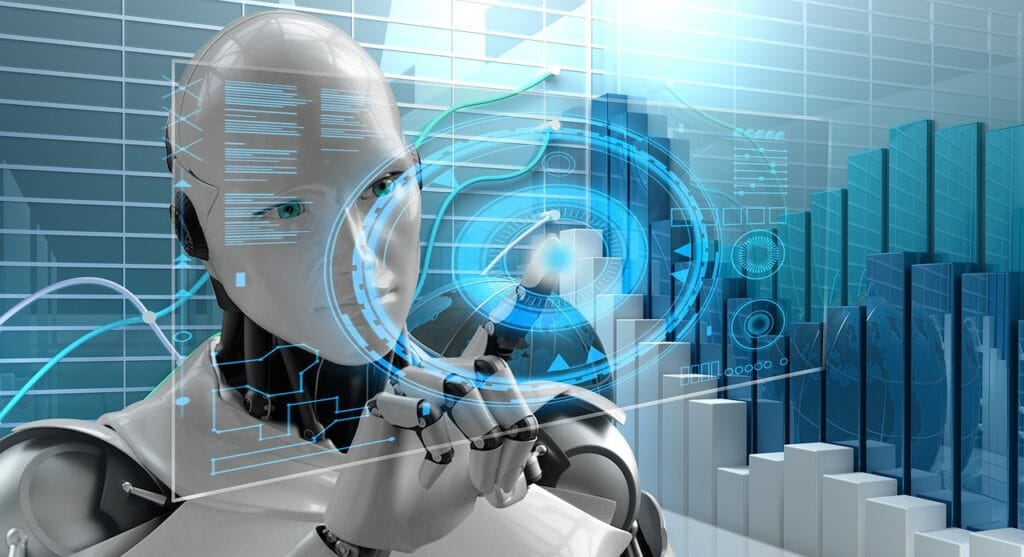The world is rapidly moving towards using AI to enhance security and productivity across sectors. However, when it comes to cybersecurity, opinions are widely divided. Artificial intelligence, alongside machine learning (ML) and algorithms, improves cybersecurity by detecting threats quickly and responding effectively.
Considering the dual nature of AI in cybersecurity, it can be used as a powerful defensive mechanism, and it also possesses far-reaching inherent risks. Today, its integration into security operations is undeniable. Organisations can now identify and combat large-scale security attacks with unprecedented efficiency. On the other hand, this groundbreaking technology also arms hackers and cyber criminals with a weapon of mass destruction.
According to the Global Economic Forum’s ‘Global Risk Report 2024’, the biggest threats in the next 2 years are misinformation and disinformation. Also, as per a study by Statista, the world witnessed approximately 17 million cybercrimes in 2023.
These are not just numbers anymore, but a huge threat to mankind. But AI is not about threats and misinformation; it can transform cybersecurity scenarios by improved threat intelligence, automated response mechanisms, and efficient vulnerability identification.
Traditional Cybersecurity Vs. AI-Enhanced Cybersecurity Measures
Before delving into the benefits and risks of AI in cybersecurity, let’s understand how AI in cybersecurity differs from traditional cybersecurity measures.
| Aspects | Traditional Cybersecurity | AI Cybersecurity |
| Threat detection | Slow detection due to manual processing | Real-time/ instant threat detection |
| Data Analysis Volume | Can process small datasets | Can process a huge amount of data, petabytes at a time |
| Incident Response Time | Manual processing leads to slow containment and rehabilitation | Automated processing leads to rapid response |
| Predictability Capacity | Relies on past activities and known signatures | Quickly predicts approaching threats and attack patterns |
| Requirement of Human Effort | Substantial manual efforts are required | Minimal requirement, AI can evaluate critical threats and automate routine tasks |
What Are The Benefits Of AI in Cybersecurity?
Artificial intelligence is developed to enhance and replicate human intelligence. Its use cases in cybersecurity are undeniably vital, especially today when the dark clouds of cyberattacks are looming over mankind.
Large and medium-scale organizations receive thousands of threat attacks regularly. Identifying and combating cyberattacks of this scale is impossible for humans. That’s where AI in cybersecurity can step in and effectively detect threats, identify newer malware, and secure sensitive data.
Let’s check out the top 10 benefits of AI in cybersecurity:
1. Identifies Unknown Threats
Not only organizations, but hackers are also well-equipped with AI these days. The latter comes up with new tricks every day, and identifying them successfully can be a big challenge. That’s when AI can help organizations identify these sophisticated hacker tricks and combat them on a large scale. If undetected, these threats can cause severe damage to the assets and reputation of companies.
2. Manages Large-Scale Data With Ease
Large-scale organizations receive a huge amount of traffic regularly. This will take days of manual work to differentiate the good from the bad, for identifying potential threats in disguise. AI is designed to manage petabytes of data at once, so it can scan and identify these cyber threats effortlessly. AI can streamline and improve security for enhanced protection.
3. AI Learns Constantly
AI utilizes deep learning and machine learning to scrutinize network behavior and identify any deviations or security incidents from the norm. This enables a quick response to threats and blocks potential threats with similar aspects in the future. The constant learning feature of AI is what makes it superior to cyber attackers, and ever-ready to tackle newer methods of cyber attacks.
4. Increases Vulnerability Management
AI in cybersecurity helps manage vulnerabilities in the company’s network. It comprehensively analyzes the existing security measures and identifies weak points that can be attacked. This enables the company to focus on vital security tasks to maximize data protection. AI also secures the business system quickly than any manual cybersecurity team.
5. Improves Security
AI is not available just for good deeds; hackers use AI to improvise threats and introduce newer challenges for organizations. Contrarily, AI can detect all kinds of attacks and prevent them, even multiple threats at a time. Even human negligence or error can prove to be fatal for company data or online asset management. AI’s self-learning capability makes it more than qualified to address such security concerns.
6. Reduces Redundant Processes
Sometimes, security teams can be engaged in repetitive security tasks that AI can easily handle. AI can check the security networks thoroughly and routinely to identify security vulnerabilities and prevent basic security threats daily.
7. Enhances Detection & Response Time
AI in cybersecurity can reduce response time for the identification and prevention of any incoming threats to the company network. When compared to humans, AI can analyze, manage, and secure your company’s network within a fraction of a second.
8. Secures Authentication
Large-scale websites handle loads of sensitive information, like user details, company details, payment details, etc. These appear like shining bait for cyber criminals. AI authenticates login procedures using strict security measures like facial recognition, Captcha, and fingerprint scan during login. This protects the network from fraudulent login attempts, credential stuffing, and brute-force attacks.
9. Manages Time-Consuming Tasks Efficiently
AI in cybersecurity removes the need for manually accomplished, time-consuming tasks done by humans. It scans, differentiates threatening and non-threatening activities, and prohibits attacks quickly and effectively. Thus, it reduces human time on security tasks and gives them a chance to focus on tasks that need a more human touch.
10. Identifies & Prevents Bot Attacks
Bots are an increasing threat as they are used for destructive activities like spreading malware and embezzling data. AI can prevent bot attacks by identifying threatening bots, learning their patterns, developing secure captchas, and deploying honeypots to trap them.
What Are The Risks Of AI in Cybersecurity?
Like any technology, AI in cybersecurity has two sides to the coin: a good one and a very bad one. With sophisticated AI integration in cybersecurity, hackers also get an added advantage; they can cause destruction on a large scale, destroy people’s and companies’ data and reputation within seconds.
Today, even the most amateur hackers can cause severe damage using AI tools. These tools can analyze the company networks for security faults and target those areas. Let’s learn about some of the many risks associated with AI in cybersecurity:
- Expert hackers can use AI tools like ChatGPT to develop malware. Though ChatGPT has preventive measures that do not allow users to create destructive code, someone can easily bypass them by using clever techniques. It is also predicted that in the future, AI tools will allow individuals with basic-level programming knowledge to develop automated malware, like a malicious bot.
- Attackers can utilize the power and speed of AI to find newer ways to undermine cloud complexity and use geopolitical unrest to launch advanced attacks. It can be easily done by using large language models and generative AI to develop attacks of unimaginable destruction and speed.
- AI can manage and analyze large-scale data at a time, which can be both an advantage and a disadvantage. Just a few days back, OpenAI embarrassingly admitted, ChatGPT leaked some user data. The extensive capability of AI can also be a risk, as it can cause large-scale damage in the case of a breach.
- Impersonation is a great threat to society, and hackers utilize this technique to produce fake voices, texts, websites, and videos to trick users. Using this, they can run various scams like fake giveaways, investment opportunities, etc., online through social media platforms.
- AI is a great tool to generate advanced malware, impersonate celebrities or websites for scams, and corrupt AI training data. Hackers can also use sophisticated methods to automate phishing, malware, and credential stuffing attacks.
Security Measures to Protect Against Risks of AI in Cybersecurity
Here are some expert tips to help individuals and organizations stay away from risks associated with AI in cybersecurity:
- Review and audit any AI system you use from time to time.
- Reduce the sharing of personal information or credentials with AI.
- Organizations must invest in advanced encryption, access control, and backup technology for data security.
- Follow best practices for software maintenance.
- Consult with reputable cybersecurity experts to train your employees in AI risk management and prevention.
- In case of AI failure, always have an incident response plan in place to identify, contain, and rectify any security breaches.
AI In Cybersecurity: Is It Beneficial For The Future?
The applications of AI are varied in nature. In one way, it can be used to defraud people and organizations of data and assets; on the other hand, it can also protect them from these attacks. AI in cybersecurity offers loads of benefits like real-time threat identification and prevention, continuous learning, reduction of errors, authenticity verification, and the list goes on. These aspects of AI can benefit large and small organisations, and even individuals, to secure data and prevent damage. According to IBM’s report, companies that utilize AI in cybersecurity and automation save an average of $2.22 million compared to those companies that still depend on other sources.
AI also makes the job for cybercriminals easy and quick to cause extensive damage. Even the most amateur hackers can develop sophisticated mechanisms to breach organizations’ networks, steal data or assets, and cause immense reputational damage.
But in comparison, the advantages offered by integrating AI in cybersecurity are greater. If it is the creator of problems, then it is the only solution to combat it, too. Just like any other technological wonder, artificial intelligence, in the right hands, can fuel innovation and advancement in various sectors globally.
Related: How Quantum Computing Will Impact Everyday Life by 2030?
Related: What Are The Potential Risks Associated With A Cryptocurrency Hot Wallet?







